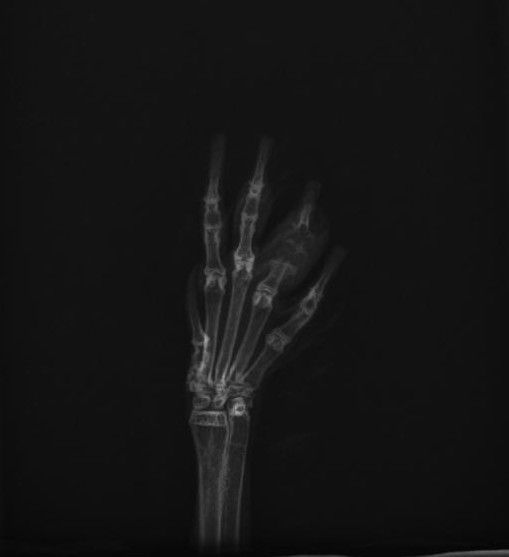Advice from a Vet: 3 Tips for Keeping Your Pet Safe While Traveling
- LIBEVC

- Dec 8, 2019
- 3 min read
Updated: Feb 16, 2020
Traveling with your exotic pet can be a wonderful experience as long as you plan ahead. With the holiday season approaching, you may have plans for taking your pet on the road (or in the sky). Ensuring that your pet is outfitted with the right travel gear, has the right paperwork, and is microchipped prior to your travels will keep your animal both comfortable and safe during your journey.
Check out our top 3 tips below:
Take the proper safety precautions.
Have the correct paperwork.
Make sure your pet is microchipped when possible.

1. Take the proper safety precautions
ALWAYS stay with your pet. They should never be left unattended. This is especially true in colder or hotter temperatures.
If traveling in chillier temps, make sure to drape a breathable blanket over your carrier to keep your animal warm. If traveling with a reptile, you can place a warm water bottle or hand warmer near them to keep their body temperature up. Make sure it isn’t too hot though, and place a layer in between them and the bottle/warmer so they can’t get too close.
If traveling in hotter temperatures, be sure the carrier has enough ventilation, turn on the air conditioning in the car ahead of your travel time, and never leave the carrier in direct sunlight.
Keep your pet hydrated. A frozen water bottle in the carrier may help them stay cool.
*Need a reptile vet? Iguana vet? Wondering if there’s a reptile vet nearby? From snakes to bearded dragon care, our team at LIBEVC has you covered.
Other general tips:
Bring along paper towels or newspapers to clean up waste.
Make sure to secure your carrier using a harness, seat belt, or any other safe way of keeping it in place.
Cardboard boxes can also be used as long as your pet won’t be able to gnaw their way out.
2. Have the correct paperwork
A health certificate for your pet is usually required for domestic travel, in addition to international travel.
Basic health certificate: A basic health certificate is usually needed for interstate travel, no matter what your mode of transportation is. However, you should check with your airline (if relevant) and the state you’re traveling to. To get a basic health certificate, you’ll need to schedule a physical exam for your pet by an accredited veterinarian. Don’t wait until the last minute; the exam must be completed well ahead of your departure.
International health certificate: International health certificates are much more complicated, as each country has different requirements and necessary paperwork. Many countries also require a basic health certificate that is signed by an accredited veterinarian and a USDA veterinarian. Remember to plan ahead. Some countries will require you to have your documentation ready months before you leave. In some instances, you may need to contact your destination’s embassy to get more information on bringing your exotic animal.
3. Make sure your pet is microchipped when possible
One of the best ways to ensure that your pet can come home is with a microchip.
Did you know?
Having your pet outfitted with a microchip will drastically increase your odds of finding them.
Only 22% of lost dogs that entered shelters without microchips were reunited with their owners.
However, 52% of dogs that were microchipped were returned.
A microchip is a tiny electronic chip that is implanted in your animal using a hypodermic needle. It can be inserted in any pet you want to keep safe, including reptiles, exotic animals, and fish. It can be activated with radio waves from a scanner. A unique identification number from the chip is transmitted and displayed to the scanner. Microchips are not GPS devices, and won’t be able to track down your animal’s location if they get lost.
If your pet is found by a shelter or vet, they’ll get scanned to see if there is a microchip with accurate information. If there is, a helpline will be called where a database backed by the American Veterinary Medical Association is searched to identify your pet. Then you, your vet, or an alternate contact will be called so you can be reunited! Once a microchip is implanted in your pet, they’ll have it for life. Once it’s been registered and you’ve made sure the information is up-to-date, there isn’t any maintenance required.
Keeping your pet protected during your travels requires a little planning, but it’ll be well worth the effort. If you have any questions, please don’t hesitate to reach out-we’re here for you and the pets you love.
*Looking for an exotic vet nearby?’
Contact LIBEVC today!



